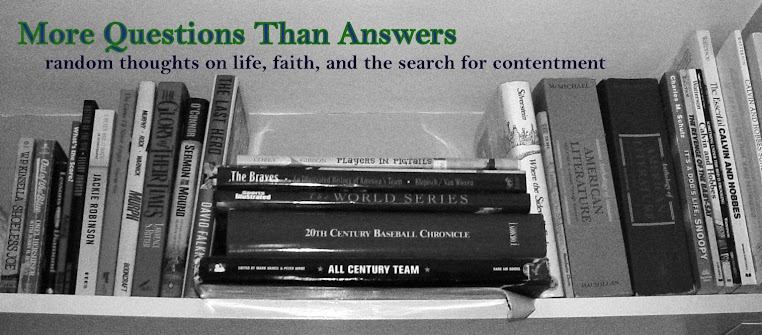Studying the book of James these past few months, this lesson is obvious. James is a pastor at heart and he is clear that demonstrating our being is a big deal. The question I continued to ask as I read was of the chicken and egg variety. What comes first--faith (right belief) or action? James is, after all, writing to Christians who have their theology down. This letter is a dummy's guide to living it; seriously, living it.
Throughout my study I was struck by how practically James thinks. Not much raw theology here like Paul's writings but heavy on life application. I can imagine James as he writes this letter, writhing with emotion. I can see the passion and feel the heartache as he thinks of his brother, the Christ. James is full of love as he writes, desperately wanting to shepherd the Christians who would be reading this letter.
In an extremely random way, the image shown above can be a metaphor for James' message about faith and action. My faith is square. It has boundaries and limits. Most of the time, I know what I believe and can articulate it. When you get to the center of faith, that is, the essence of what faith is, demonstration and application matter. If un-fairness (or greed, pride, selfishness, or whatever you deal with) isn't reported in my life then what reason (or right for that matter) do I have to declare I live in a square house? I guess what I am suggesting is that we cannot have one without the other. Faith without works is truly dead. Character generated from faith is real religion.
Maybe this is why, as Christians, our message often sounds stale and out of touch. Often the hearers of the message cannot see and understand the purpose of our declaration. "Show me, don't tell me," they say. Because that utterance is tough to defend I say, "agreed".
If any of you lacks wisdom, he should ask God, who gives generously to all without finding fault, and it will be given to him. But when he asks, he must believe and not doubt, because he who doubts is like a wave of the sea, blown and tossed by the wind. That man should not think he will receive anything from the Lord; he is a double-minded man, unstable in all he does. James 1:5-8 (NIV)

No comments:
Post a Comment